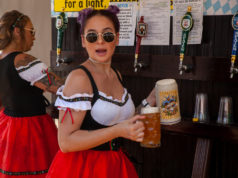- GROUP A
SOUTH AFRICA
Coach: Carlos Alberto Parreira.
Nickname: The Bafana Bafana.
Honors: Champions, African Cup of Nations 1996. Second place, African Cup of Nations, 1998. Fourth place, Confederations Cup 2009.
Notes: Perhaps the weakest host team in World Cup history, with only USA in 1994 giving them a run. However, it’s best not to discount the home-field advantage in these tournaments, and South Africa’s fans have a history of buoying both their national rugby and soccer teams to championships. The defense will be marshaled by English league veteran Aaron Mokoena and shielded by awesomely named midfielders MacBeth Sibaya and Kagiso Dikgacoi (last name pronounced “dee-HAH-chew-ah” — by the way, his middle name is Evidence). Wingers Elrio van Heerden and Steven Pienaar look to be the primary creators on offense. Striker Bernard Parker has the speed to run at opposing defenses. You’ll probably notice Matthew Booth, the giant bald white guy on the backline. The crowd will sound like they’re booing him when he has the ball, but they’ll actually be shouting his last name: “Booooooth!”
Concern: Defensive speed. General lack of quality all over the field is why many experts are picking South Africa to be the first host team to fail to advance from the group stages, but their defenders aren’t very mobile. Mexico in particular has an offense that might trouble them.
The main man: Benni McCarthy. The country’s only natural goal-scorer was exiled from the Bafana Bafana after a falling-out with former coach Joel Santana. Now that Santana has been fired, McCarthy could return and provide a much-needed boost to South Africa’s offense. The World Cup has a way of patching up disagreements between players and teams.
MEXICO
Coach: Javier Aguirre.
Nickname: El Tricolor.
Honors: Champions, Confederations Cup 1999; and CONCACAF Championships 2009, 2003, 1998, 1996, 1993, 1977, 1971, and 1965. Second place, Copa América 2001 and 1993.
Notes: After four straight World Cups where they were eliminated in the round of 16 (with an especially bitter loss to USA in 2002), the Mexicans are hungry to break the hex. They recovered from an awful start to qualifying, changing coaches three times in the last two years before righting the ship. Their offense, which depends heavily on short, pretty passes and lengthy time of possession, is stacked with creators such as speedy left winger Andrés Guardado and aging but still capable Cuauhtémoc Blanco. Other tantalizing attacking players such as Nery Castillo and Giovani dos Santos have been impressive for them in the past, but are currently having trouble getting off the bench on their club teams.
Concern: Defensive height. Mexico boasts a terrific starting backline of Ricardo Osorio, Carlos Salcido, Jonny Magallón, and Héctor Moreno. However, none of those players are over six feet tall, which is unusual in the modern game. A tall striker who can jump and head the ball might be able to seriously unsettle them.
The main man: Rafael Márquez. The midfield general has been captain of this team for most of this decade. He’s now a seasoned veteran who’s won every trophy conceivable at the Spanish superclub Barcelona. His experience will be invaluable.
URUGUAY
Coach: Óscar Washington Tabarez.
Nickname: None.
Honors: Champions, World Cup 1950 and 1930; and Copa América 1995, 1987, 1983, 1967, 1959, 1956, 1942, 1935, 1926, 1924, 1923, 1920, 1917, and 1916.
Notes: A team that hasn’t been seen much on the world stage recently, the Uruguayans boasted the world’s best soccer team in the sport’s early days, but in recent decades have earned a reputation as a team that plays thuggishly to compensate for lack of talent. They have a solid defensive corps led by team captain Diego Lugano, and their midfield features a bunch of steadfast defensive types in Walter Gargano, Diego Pérez, and Sebastián Eguren, with Nacho González offering a more attacking option. Their offense comes more from free-scoring strikers Luis Suarez and Diego Forlán, the latter nicknamed “El Pajarito” for his small stature, leaping ability, hooked nose, and blond feathered hair that gives him a distinctly bird-like appearance.
Concern: Goalkeeping. Juan Castillo is agile, but he has bad hands, and all the country’s other goalkeepers are shakier than him.
The main man: Sebastián Abreu. The Uruguayans’ frontline features lots of smallish players, but if the hulking Abreu can complement those threats with his size, the team could make some noise.
FRANCE
Coach: Raymond Domenech.
Nickname: Les Bleus.
Honors: Champions, World Cup 1998; and Euro 2000 and 1984; and Confederations Cup 2003 and 2001. Third place, World Cup 1986. Fourth place, World Cup 1982.
Notes: Cheaters! Their presence here is a blight on the tournament. That said, they have one of the best left backs in the game in Patrice Evra and some silky attacking players in Yoann Gourcuff and Karim Benzema. There’s also Thierry Henry, who — when he’s not busy turning the sport into basketball — is a fantastic goal-scorer. Defensively, they’re steadied by midfielders Lassana Diarra and Jérémy Toulalan and the excellent central defender William Gallas. A big question mark might be in goal, where their candidates for starting goalkeeper (Hugo Lloris, Steve Mandanda, and Cédric Carrasso) are all talented but lacking experience at the highest level. World Cup pressure is unlike any other, and who knows which of them might be overwhelmed?
Concern: Coaching. The French should have qualified easily with their talent, but coach Raymond Domenech has mismanaged them so much that he’s replaced Matt Millen and Isiah Thomas in the “How does this guy still have a job?” sweepstakes. Domenech has admitted to using astrological signs to pick his starting lineups. Under his watch, the French have struggled against weaker teams and looked disjointed, far from the flowing soccer that observers are used to seeing.
The main man: Franck Ribéry. Historically, French offenses have revolved around slow-moving passing geniuses like Michel Platini or Zinédine Zidane. Ribéry, on the other hand, has made himself into the hub of Les Bleus’ offense with his searing speed. He tormented defenses at World Cup 2006 and looks set to do it again.
-
GROUP B
ARGENTINA
Coach: Diego Maradona.
Nickname: None.
Honors: Champions, World Cup 1986 and 1978; and Copa América 1993 and 1991. Second place, World Cup 1990; and Copa América 2007 and 2004; and Confederations Cup 2005 and 1995.
Notes: A team that was playing sumptuous offensive soccer about two years ago under coach José Pekerman is now underachieving mightily. However, they still have indefatigable offensive players such as Carlos Tévez and Luis “Lucho” González who can trouble anyone. Defensively, the squad is starting to look old, especially fullbacks Gabriel Heinze and Javier Zanetti. They’re shielded, though, by two badass defensive midfielders in Esteban Cambiasso and Javier Mascherano. Maradona has been making left-field selections in his lineup, so don’t be surprised if somebody winds up on their squad whom no one expects.
Concern: Coaching. Maradona is one of the sport’s all-time great players, but he was hired without much experience in a management position, and he has looked thoroughly overmatched.
The main man: Lionel Messi. The diminutive playmaker and finisher for Barcelona has staked a legitimate claim to being the world’s greatest offensive player, but he hasn’t duplicated his club form for the national team. If he finds it, he can destroy opposing teams all by himself.
SOUTH KOREA
Coach: Huh Jung-moo.
Nickname: None.
Honors: Fourth place, World Cup 2002.
Notes: What this team lacks in quality, they tend to make up for in sheer grit, determination, and fitness levels that have them running hard at the end of games when other teams have wilted. They’re backstopped by aging but still effective goalkeeper Lee Woon-jae, and their midfield is extremely difficult to break down with the likes of team captain Park Ji-sung, Cho Won-hee, and Kim Nam-il. Striker Park Chu-young is a dangerous threat going forward, and veteran Seol Ki-hyeon provides a cutting edge off the bench.
Concern: Central defense. The starting pairing of Lee Jung-soo and Cho Yong-hyung are green and easily caught out of position. (Lee’s fairly injury-prone, too.) With their inexperience, they might easily be overwhelmed by the play at this level.
The main man: Ki Sung-yong. Only 20 years old, the youngster will be thrown into the deep end as a playmaker from central midfield. Throughout history, young players have used the World Cup as an audition to land roles with high-profile European teams. Will the kid be a Ki player? (Sorry!)
NIGERIA
Coach: Shaibu Amodu.
Nickname: The Super Eagles.
Honors: Champions, African Cup of Nations 1994 and 1980. Second place, African Cup of Nations 2000, 1990, 1988, and 1984. Third place, African Cup of Nations 2006, 2004, 2002, 1992, 1978, and 1976.
Notes: This team is fast, fast, fast. Lest you think I’m stereotyping, they’re faster than the other African countries. Fullbacks Taye Taiwo and Chidi Odiah like to launch attacks from the rear, while speedsters such as Peter Odemwingie, the immature Victor Obinna, or the handspring-turning Obafemi Martins will go running down the sidelines and up the middle toward the opposing goal. Despite all the speed, if you engage in a physical battle with the Super Eagles, defensive midfielders like the massive Seyi Olofinjana, the savvy Ayila Yussuf, or the determined youngster John Obi Mikel will make you pay.
Concern: Organization. Those fullbacks can be caught out of position, which will put immense pressure on experienced central defender Joseph Yobo and whoever partners him, whether that’s super-strong Danny Shittu or one of the country’s youth prospects (Dele Adeleye or Onyekachi Apam). With this team, there’s a chance for lots of goals at either end.
The main man: Yakubu Aiyegbeni. The striker for the English club Everton is a reliable goal-scorer, and provides some height to complement their smaller, quicker players. He’s stepping in for the aging Nwankwo Kanu, and now’s his time to prove himself on the world stage.
GREECE
Coach: Otto Rehhagel.
Nickname: None.
Honors: Champions, Euro 2004.
Notes: One of the more boring teams here, the Greeks have had great success at the Euro tournaments but not getting into the World Cup. This is only the second time they’ve qualified for the event. They’ve built their success on scoring the first goal and then choking the life out of the opposing team with their suffocating defense. They’ve got several untried prospects on their defense, among them central defenders Avraam Papadopoulos (24) and Sokratis Papastathopoulos (21). One of them will probably be paired with 30-year-old Sotiris Kyrgiakos, while midfielders Kostas Katsouranis and dead-ball specialist Angelos Basinas will shield them. The aging Traianos Dellas might be called on as well.
Concern: Scoring. This team won’t go anywhere unless they can put at least a couple of balls in the net. The goals will have to come from somewhere, whether that’s lumbering giants like Georgios Samaras and Angelos Charisteas or quick guys like Dimitris Salpingidis and Theofanis Gekas.
The main man: Konstantinos Chalkias. The other big question mark is in goal, where gray-haired Antonios Nikopolidis held down the Greeks’ starting spot for many years. Chalkias appears to be leading Alexandros Tzorvas and Michalis Sifakis in the race to inherit his starting role. Whoever’s between the sticks will face the unique pressures of the World Cup for the first time.
GROUP C
ENGLAND
Nickname: None.
Honors: Champions, World Cup 1966. Semifinals, Euro 1996. Fourth place, World Cup 1990.
Notes: England’s long-suffering fans usually go into major tournaments telling themselves that it’s their year, but this year people outside the U.K. are believing it, too. They don’t have a world-class goalkeeper (a sore subject from a country accustomed to producing excellent ones), but the slick Rio Ferdinand and the steadfast John Terry will keep lots of shots from getting to goal in the first place. Fullbacks Ashley Cole and Glen Johnson will attack down the sides, while attacking midfielder Steven Gerrard and striker Wayne Rooney will confuse defenses by switching spots and firing from unpredictable angles. Should England need a goal late in the game, they’ll bring on one David Beckham to take free kicks and corner kicks. What a luxury to have a weapon like that in reserve.
Concern: Pressure. England’s fans and press have been waiting for another World Cup win since their one in 1966, and it’s driven them crazy. (Think Red Sox fans before 2004.) Will it get to the players?
The main man: Coach Fabio Capello. He’s the Bill Belichick of world soccer: an X’s and O’s genius who wins a lot and gains the respect of everyone and the friendship of few. The Italian took over a demoralized England team after they failed to qualify for Euro 2006 and has turned them into a juggernaut. Can he keep it up?
UNITED STATES OF AMERICA
Nickname: None.
Honors: Champions, North America 2007, 2005, 2002, and 1991. Second place, Confederations Cup 2009.
Notes: A hard team to get a fix on. They’re capable of beating the best team in the world with a determined defend-and-counter approach, but they’re also capable of struggling and looking inept against the likes of Guatemala and Trinidad. The offense depends on the strength and presence of 19-year-old Josmer “Jozy” Altidore, the speed and flair of diva-like Landon Donovan, and the opportunistic strikes of Clint Dempsey. The defense will rely on goalkeeper Tim Howard, getting his first stint as USA’s number one guy and capable of playing with the best.
Concern: Depth. Severe injuries to central defender Oguchi Onyewu and striker Charlie Davies have exposed a lack of options in those positions. Onyewu may or may not be back by June, but if players go down as the tournament wears on, USA will be in dire straits.
The main man: Coach Bob Bradley. Charlie Davies would have started at striker next summer had he not suffered some life-threatening injuries in a car accident. Now the coach has to figure out where best to deploy Donovan and Dempsey, and what effect that’ll have on his midfield. That’s a lot to decipher in the months ahead.
ALGERIA
Coach: Rabah Saadane.
Nickname: Les Fennecs.
Honors: Champions, African Cup of Nations 1990. Second place, African Cup of Nations, 1980. Third place, African Cup of Nations 1988 and 1984. Fourth place, African Cup of Nations 1982.
Notes: The only Arab country at the tournament qualified after two games against Egypt that were so acrimonious that they severely damaged diplomatic relations between the two nations. This team is determined, and they figure to align so that they can get as many of their plethora of defensive midfielders (including team captain Yazid Mansouri) on the field. Elsewhere, they have a solid central defensive pairing in Majid Bougherra and Anthar Yahia, while Nadir Belhadj provides some attacking thrust from the left back position. Up front, Rafik Saïfi is an old hand, but perhaps he’s ready to give way to younger strikers Rafik Djebbour or Kamel Ghilas.
Concern: New blood. Aside from the team being here for the first time since 1982, they’re also incorporating several players such as midfielders Hassan Yebda and Mourad Meghni who recently switched their nationalities so they could play at the World Cup. Incorporating the new guys while taking on teams with settled personnel might be a challenge too far.
The main man: Karim Ziani. Algeria’s one truly world-class player is this sweet-passing midfielder and free-kick taker for German champions Wolfsburg. He’ll have to shoulder the offensive load for this team to do anything.
SLOVENIA
Coach: Matjaž Kek.
Nickname: None.
Honors: None.
Notes: The Slovenes got into the tournament by using their defense to get by fading Poland and Czech Republic teams in qualifying, then upsetting a brilliant Russian team in the playoffs. They’ve shown tons of heart getting this far, but they don’t have a great deal of talent. Their fullbacks (Bojan Jokić on the left, Miso Brečko or Branko Ilič on the right) are the best-regarded players. All-purpose playmaker Robert Koren holds down a spot in the middle, while giant-sized Milivoje Novakovič and quick dribbler Valter Birsa form a serviceable strike partnership.
Concern: Inexperience. The Slovenes qualified for the World Cup eight years ago, but this is an entirely new group of players, and they’ve had no other major tournaments to play at. They might just be overwhelmed by the occasion.
The main man: Samir Handanovič. The young keeper is the starter at the Italian team Udinese and looks to be solid for years to come. He’s not the most agile presence in the net, but he’s particularly good at stopping penalties. He’ll need to stand tall to keep this team from being overrun.
GROUP D
GERMANY
Coach: Joachim Löw.
Nickname: None.
Honors: Champions, World Cup 1990, 1974, and 1954; Euro 1996, 1980, and 1972. Second place, World Cup 2002, 1986, 1982, and 1966; Euro 2008, 1992, and 1976. Third place, World Cup 2006, 1970, and 1934. Semifinals, Euro 1988. Fourth place, World Cup 1958.
Notes: Usually the Germans come into these tournaments with at least one defensive player who simply scares the crap out of everyone. That hasn’t been the case for a while, though. Credit the German coaches with recognizing this and turning them into an up-tempo offensive team. Bastian Schweinsteiger (his last name means “pig herder”) will provide some attacking impetus behind main scorer Miroslav Klose. Klose needs another scoring threat to take the pressure off him, and the likes of Mario Gomez and Stefan Kiessling have been unreliable. The Germans are looking for a new goalkeeper to replace the departed Jens Lehmann. One of René Adler, Tim Wiese, or Manuel Neuer will win the spot.
Concern: Fullbacks. The dynamic Philipp Lahm can play on either side, but other than him the outside defenders are distinctly average on this team. A team with good wingers can exploit their defensive weaknesses and pull the upset.
The main man: Michael Ballack. The longtime captain of this team is a towering presence in the middle of the field, making passes and dangerous runs into the opposing penalty box. The Germans have long learned to draw inspiration and fighting spirit from him.
AUSTRALIA
Coach: Pim Verbeek.
Nickname: The Socceroos.
Honors: Second place, Confederations Cup 1997. Third place, Confederations Cup 2001.
Notes: They beat teams in Oceania by ridiculous scores so they could engineer a move to to the stronger Asian confederation four years ago. It paid off, as the Socceroos played regularly against more powerful teams and proved themselves to be very good indeed. Lumbering striker Mark Viduka is offset by the quickness of Archie Thompson and the inconsistent but brilliant skill of Harry Kewell. The defense is dotted with useful utility players like right back Brett Emerton and midfielders Mark Bresciano and Vincent Grella (who play for teams in Italy, where they’re known as Marco and Vincenzo). The team is backstopped by solid goalkeeper Mark Schwarzer.
Concern: Age. This is basically the same team that went to World Cup 2006. All their key guys are increasingly prone to injuries. How long can they stay on the field?
The main man: Tim Cahill. Has had to carry the offensive load at Everton all by himself at times, and has done it well enough to earn cheers from the demanding English fans. He often makes plays with his passing, but he has scoring touch as well, compensating for his lack of size with his phenomenal leaping ability and tremendous heart.
GHANA
Coach: Milovan Rajevac.
Nickname: The Black Stars.
Honors: Champions, African Cup of Nations 1982, 1978, 1965, and 1963. Second place, African Cup of Nations 1992, 1970, and 1968. Third place, African Cup of Nations 2008.
Notes: Maybe the best midfield among the African teams belongs to the Black Stars. Michael Essien is one of the best defensive stoppers anywhere, and he’s flanked by the solid likes of Sulley Muntari and Anthony Annan (whose uncle is former U.N. Secretary General Kofi Annan). The defense is led by diminutive but bloody-minded John Mensah and excellent right back John Paintsil. The unorthodox Richard Kingson (fantastic strength and positioning, but bad hands) tends the goal.
Concern: Finishing. If they had anybody with any kind of scoring touch, this team would do far more damage than it does. If they’re going to knock off a heavyweight, one of their strikers will have to step up, whether that’s Asamoah Gyan, Matthew Amoah, or the awesomely named Junior Agogo.
The main man: Stephen Appiah. The team captain spent more than a year without a professional team because he demanded such exorbitant wages. He has finally signed on with the Italian club Bologna and will take the field again in January. If he can shake the rust, he can be a powerful creative force.
SERBIA
Coach: Radomir Antić.
Nickname: None.
Honors: Second place, Euro 1968 and 1960. Fourth place, World Cup 1962 and 1930. (All as Yugoslavia).
Notes: When the country of Yugoslavia existed, their citizens took pride in their ability to play attacking soccer. Now that they’ve broken up, most of the countries that resulted are trying to carry on that tradition, and Serbia is no exception. Team captain Dejan Stanković is the best of a roster full of playmakers, including speedy wingers Miloš Krasić and Miralem “Mickey” Sulejmani. For balance, they’ll likely field Gojko Kačar as a defensive counterweight. The backline boasts brick wall-like Nemanja Vidić, nicknamed “Supermanja” by Manchester United’s adoring fans.
Concern: Partnering. Another central defender is needed to partner Vidić. Can slowing fullback Ivica Dragutinović make the adjustment, or will the Serbs go with 20-year-old Neven Subotić? They’d also like a finisher in addition to the main man below.
The main man: Nikola Žigić. The Germans figure to have the tallest team at the tournament, but even they will be looking up at this 6’9” striker, the world’s tallest professional player. This wide body has good scoring touch and the strength to strike fear into the stoutest defense.












Urugauy are known as la garra charrua or simply los charruas